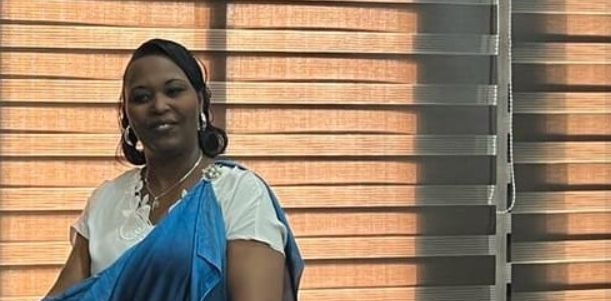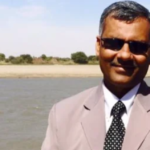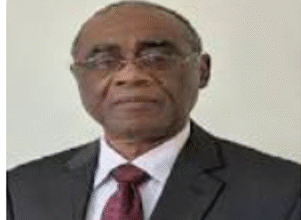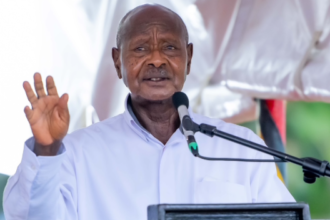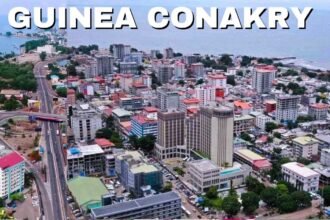IFAD Projects in Liberia Empower Over 30,000 Farmers with Sustainable Income, Climate Resilience, and Market Access
By: James M.V. Yougie, Senior Reporter
Monrovia, Liberia – In an exclusive interview with Darlington F. Doe, Head of Monitoring and Evaluation for IFAD projects in Liberia, IFAD’s groundbreaking initiatives have been transforming the agricultural sector in Liberia, creating ripple effects across rural communities in Nimba, Lofa, and Bong Counties. With $87 million in funding, the Tree Crops Extension Projects I & II (TCEPs I & II) and the Building Climate Resilience Project (BCRP) have revitalized cocoa farms, built essential infrastructure, and introduced market-oriented farming practices that are reshaping Liberia’s agricultural landscape.
Empowering Smallholder Cocoa Farmers for Sustainable Growth
Since 2009, after a 20-year hiatus, IFAD has worked to strengthen Liberia’s agricultural resilience by directly supporting over 30,000 smallholder farmers, including youth (35%) and women (30%), who are critical to Liberia’s economic backbone. The project’s cornerstone is the rehabilitation of cocoa farms, covering 10,330 hectares across Nimba, Lofa, and Bong Counties. By providing improved, disease-resistant hybrid cocoa seeds, farmers now benefit from high-yield, fast-fruiting crops that are more climate-resilient.
“Farmers are now witnessing their cocoa harvests within 18-24 months of planting,” said Mr. Doe. “By 2025, we anticipate cultivating an additional 3,800 hectares and supporting over 4,500 new beneficiaries.”

A major success under IFAD’s cocoa program has been the establishment of Liberia’s first National Cocoa Seed Garden in Beeplay, Nimba County. Spanning 30.4 hectares and outfitted with advanced agricultural infrastructure, this seed garden supplies locally adapted, high-yield cocoa varieties, reducing dependency on imported seeds and empowering Liberian farmers with superior planting stock. “At its full potential, this garden will support the cultivation of 3,500 hectares annually,” Doe highlighted.
Bridging Rural-Urban Gaps with Farm-to-Market Roads
The TCEP and BCRP projects have rehabilitated 211 km of farm-to-market roads, significantly enhancing access to markets and services. Over 97 km of ongoing road work and another 186 km set for completion in 2025-2026 are expected to bolster market connectivity further. Farmers now report travel times reduced from three hours to less than one hour, with transportation costs dropping from LRD 2000 to about LRD 700, creating newfound market access that was once prohibitively expensive.
“The road improvements mean better access to markets, healthcare, and other essential services,” said Doe. “Farmers now have reliable, cost-effective means to transport goods, which boosts incomes and local economies.”
Strengthening Value Chains and Cooperative Systems
The projects’ value chain initiatives have also empowered cooperatives like LACRA, CDA, and CARI to strengthen quality control and leadership skills among cooperative members. The impact has been profound: cooperative cocoa purchases rose from 94.4 metric tons in 2020 to 468.6 metric tons in 2024, with income rising by a staggering 514% – from USD 167,284 to USD 1,028,005.
“Farmers are regaining trust in cooperatives and finding stable markets through cooperative channels,” Doe explained. “These partnerships are crucial for creating resilient, high-performing value chains that empower rural economies.”
Alignment with Global and National Development Goals
IFAD’s commitment to sustainable development aligns with Liberia’s ARREST Agenda, the National Agriculture Development Plan (NADP) 2024-2030, and the United Nations Sustainable Development Goals (SDGs). By enhancing agricultural productivity, building climate resilience, and fostering local economic growth, IFAD’s initiatives target SDG 1 (No Poverty), SDG 2 (Zero Hunger), SDG 8 (Decent Work), and SDG 13 (Climate Action).
With ongoing support for cooperatives, farm-to-market roads, and market access infrastructure, IFAD is fostering a new generation of resilient farmers equipped to tackle challenges and seize opportunities in a globalized agricultural landscape. As Mr. Doe noted, “IFAD is not only supporting farmers today but is investing in Liberia’s sustainable, food-secure future.”
As these programs advance, IFAD’s sustained focus on inclusive, climate-resilient agriculture promises lasting impacts for rural Liberia, empowering farmers to become the agents of change in their own communities and in Liberia’s agricultural transformation.


